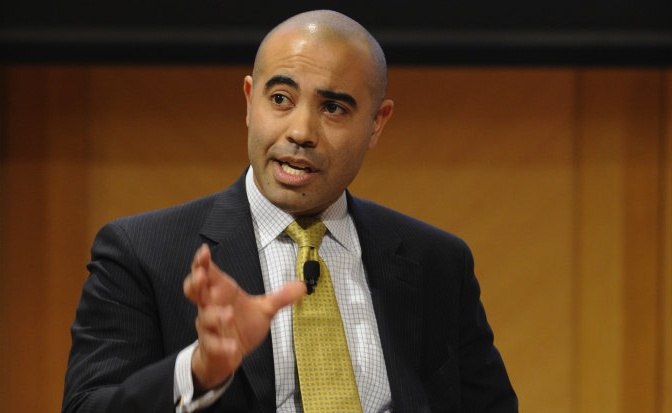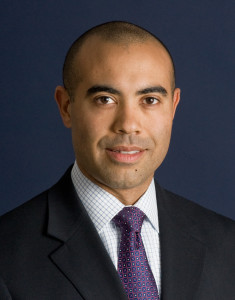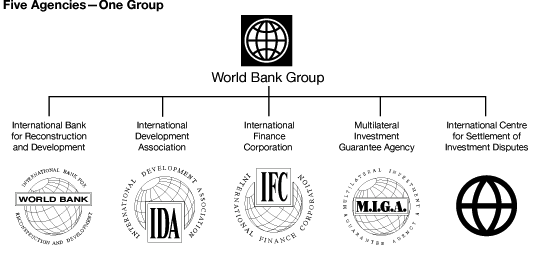World Bank Group’s New Approach
Pragmatism in, Ideology out
Can Africans Believe in It?

World Bank Group’s New Approach
Pragmatism in, Ideology out
Can Africans Believe in It?
“I am a socialist and I take part in the ‘Occupy Tampa’ movement” said one of the students opening the first question at an event sponsored by the USF World, at the University of South Florida’s International Program in Tampa, Florida. The question was directed at the Executive Director of the World Bank Group, Ian Solomon, after a lecture which lasted for about an hour.
 The student simply wanted to express his skepticism toward the bank and given the global economic crisis, his introduction was enough to sum up his viewpoint. However, without skipping a beat, Mr. Solomon, was quick to share his past experience in South Africa where he said that he felt comparable frustration toward difficulties of institutional accountability while living in the unequal country. During his time there he co-authored two chapters in “‘No More Tears…’ Struggles for Land in Mpumalanga, South Africa,” a book about social and economic transformation in the country. Ten years ago, he said, it would be unimaginable to have the transparency the World Bank currently has and he has learned that you can make a difference if you approach problems pragmatically instead of being driven by an ideology. That was the main approach and theme of the lecture.
The student simply wanted to express his skepticism toward the bank and given the global economic crisis, his introduction was enough to sum up his viewpoint. However, without skipping a beat, Mr. Solomon, was quick to share his past experience in South Africa where he said that he felt comparable frustration toward difficulties of institutional accountability while living in the unequal country. During his time there he co-authored two chapters in “‘No More Tears…’ Struggles for Land in Mpumalanga, South Africa,” a book about social and economic transformation in the country. Ten years ago, he said, it would be unimaginable to have the transparency the World Bank currently has and he has learned that you can make a difference if you approach problems pragmatically instead of being driven by an ideology. That was the main approach and theme of the lecture.
The event was held inside a futuristic innovation center, where young people’s photos (about 3’ X 4’) surround the building with words, such as leadership, innovation plastered on them. The center is the Patel School of Global Sustainability, USF’s research and education center working to create solutions for global problems. During the lecture, Mr. Solomon explained what the World Bank Group does, the history of the bank and how it has evolved from its inception in the 1940s all the way to the adaptations it has made to meet challenges in the 21st century. With his impressive background and almost uncanny Obama-like look and voice, Mr. Solomon has many impressive qualities. He can boast a breadth of knowledge from dealing with economic development issues such as poverty and food security to finance-related issues working with the Obama administration as the Senior Advisor to the Treasury Secretary. He was excited and energized to meet the institution’s innovators and business leaders and urged them to collaborate in order to solve economic problems in the world. Therefore, it didn’t come as a surprise when shortly after his visit, Mr. Solomon, sat down with the school’s research fellows and talked about opportunities for water-related issues in Sub-Saharan African countries. The institute currently has three African fellows originally from Eritrea, Ethiopia and Uganda.

The World Bank has been operating for a long time on the continent but there are still challenges of poverty and hunger. Even though recent news shows a positive economic projection in the Sub-Saharan African nations with significant GDP growth of 7-9 %, regular Africans are being passed over. Many of them are still making less than a dollar a day and I asked Mr. Solomon what approaches his organization plans to take in order to make sure that World Bank’s funds don’t only benefit the political elite and oligarchs in the region. He gave examples of Tanzania and Rwanda rejecting funds if it doesn’t go towards local programs. He said, they would tell us, “don’t give us your random ten million dollars unless it matches our program.” He stressed that one of the key themes of the Obama administration’s development policy is country ownership. It is difficult to achieve goals without individual country’s responsibility and implementation of programs. He said, “the finance minister, the agriculture minister has to say, here is where we need support and if you can’t support this, I don’t need your money.” The most important point he stressed for solving such problems is the need for accountability and transparency. Here is a quick video from the lecture explaining how transparency and good governance play an important role in economic growth. He also addresses how the World Bank Group makes sure development projects could help those who need it most.
In line with Mr. Solomon’s lecture and how the administration is dedicated to reach out to business opportunities in Africa, today, President Obama announced a $3 billion corporate pledge in order to help boost agriculture and help Africa achieve food security at the G8 Summit in Camp David. It will be met with mixed feelings on how the money will be implemented. As Mr. Solomon pointed out at the presentation, it might not be a great business approach, “but we are constantly working hard to get ourselves out of business.”
Is this a change Africans can believe in?
Watch the above video for one-on-one questions with Mr. Ian Solomon below
For future developmental projects in Africa, which countries would you say have been exemplary models to learn from based on the World Bank’s past work? What are the criteria used for identifying success?
In terms of approaching leadership in Africa, how do you think the World Bank plans to approach leaders who resist foreign intervention? What do you think is the best way to build mutual business partnerships with such countries?
Controversy: Ms. Ngozi Okonjo-Iweala, Nigeria’s Finance Minister was passed over in her quest to become the World Bank President. She said the decision was “not based on merit.” Do you think opening up the position for a qualified African who closely understands the continent and its finances would be a better fit?
Viewer Question: “The role of the World Bank is changing now that it’s being called upon to bail out developed countries such as Greece. What is the effect of this on the Bank’s more traditional role vis-a-vis developing countries?” Amanda Jones from Manassas, Virginia.










